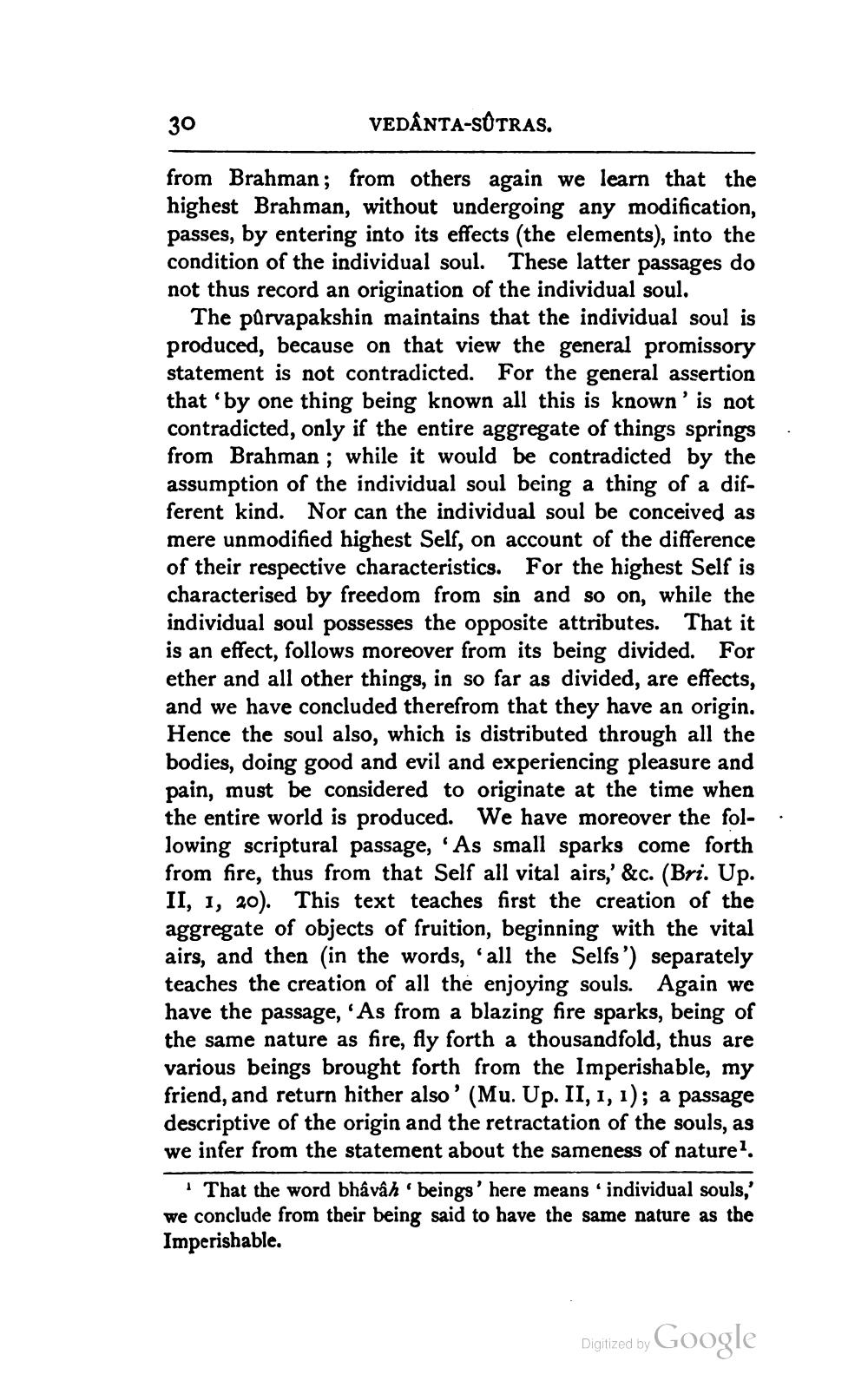________________
30
VEDANTA-SUTRAS.
from Brahman; from others again we learn that the highest Brahman, without undergoing any modification, passes, by entering into its effects (the elements), into the condition of the individual soul. These latter passages do not thus record an origination of the individual soul.
The purvapakshin maintains that the individual soul is produced, because on that view the general promissory statement is not contradicted. For the general assertion that 'by one thing being known all this is known' is not contradicted, only if the entire aggregate of things springs from Brahman; while it would be contradicted by the assumption of the individual soul being a thing of a different kind. Nor can the individual soul be conceived as mere unmodified highest Self, on account of the difference of their respective characteristics. For the highest Self is characterised by freedom from sin and so on, while the individual soul possesses the opposite attributes. That it is an effect, follows moreover from its being divided. For ether and all other things, in so far as divided, are effects, and we have concluded therefrom that they have an origin. Hence the soul also, which is distributed through all the bodies, doing good and evil and experiencing pleasure and pain, must be considered to originate at the time when the entire world is produced. We have moreover the following scriptural passage, 'As small sparks come forth from fire, thus from that Self all vital airs,' &c. (Bri. Up. II, 1, 20). This text teaches first the creation of the aggregate of objects of fruition, beginning with the vital airs, and then (in the words, 'all the Selfs') separately teaches the creation of all the enjoying souls. Again we have the passage, 'As from a blazing fire sparks, being of the same nature as fire, fly forth a thousandfold, thus are various beings brought forth from the Imperishable, my friend, and return hither also' (Mu. Up. II, 1, 1); a passage descriptive of the origin and the retractation of the souls, as we infer from the statement about the sameness of nature1.
That the word bhâvâh' beings' here means 'individual souls,' we conclude from their being said to have the same nature as the Imperishable.
Google
Digitized by




